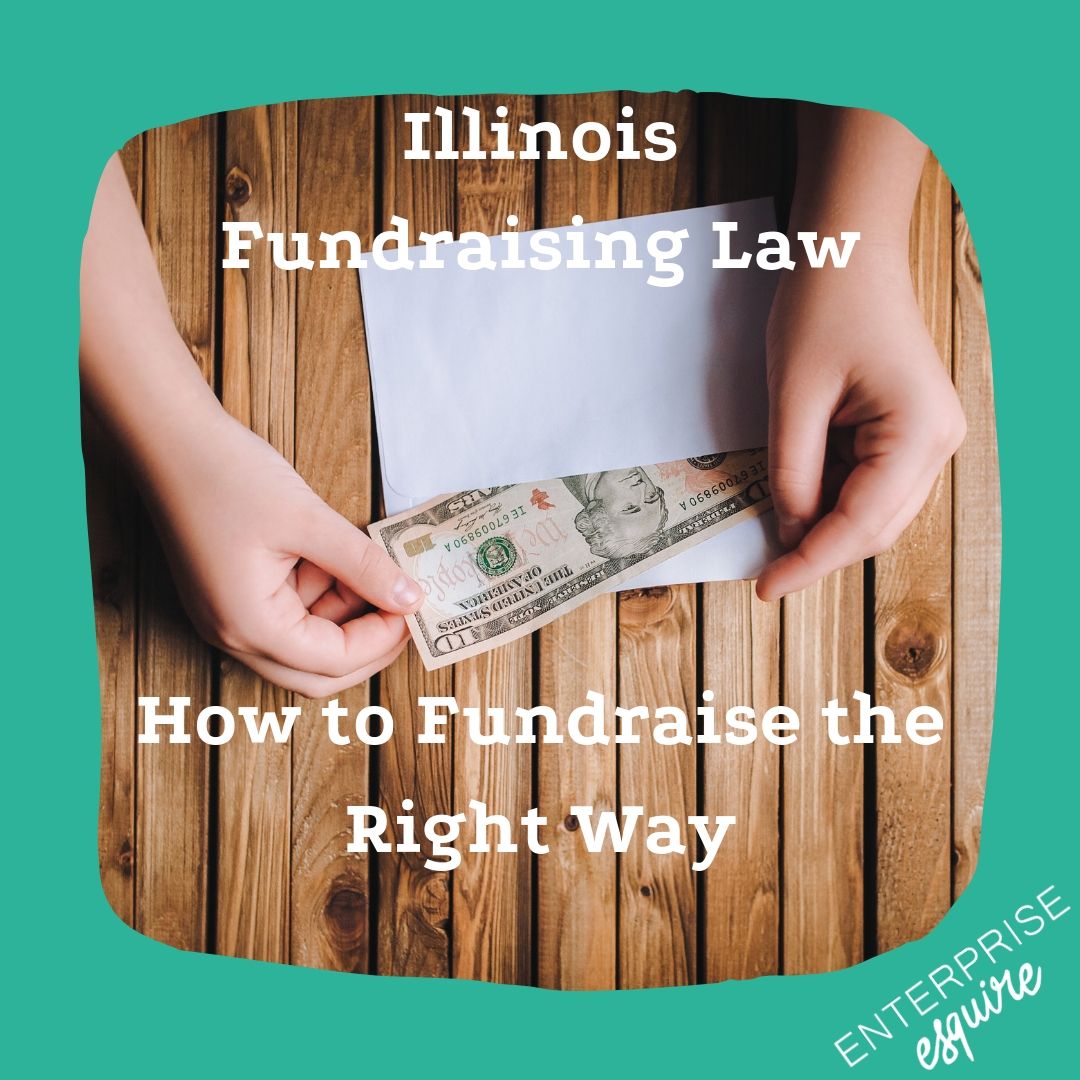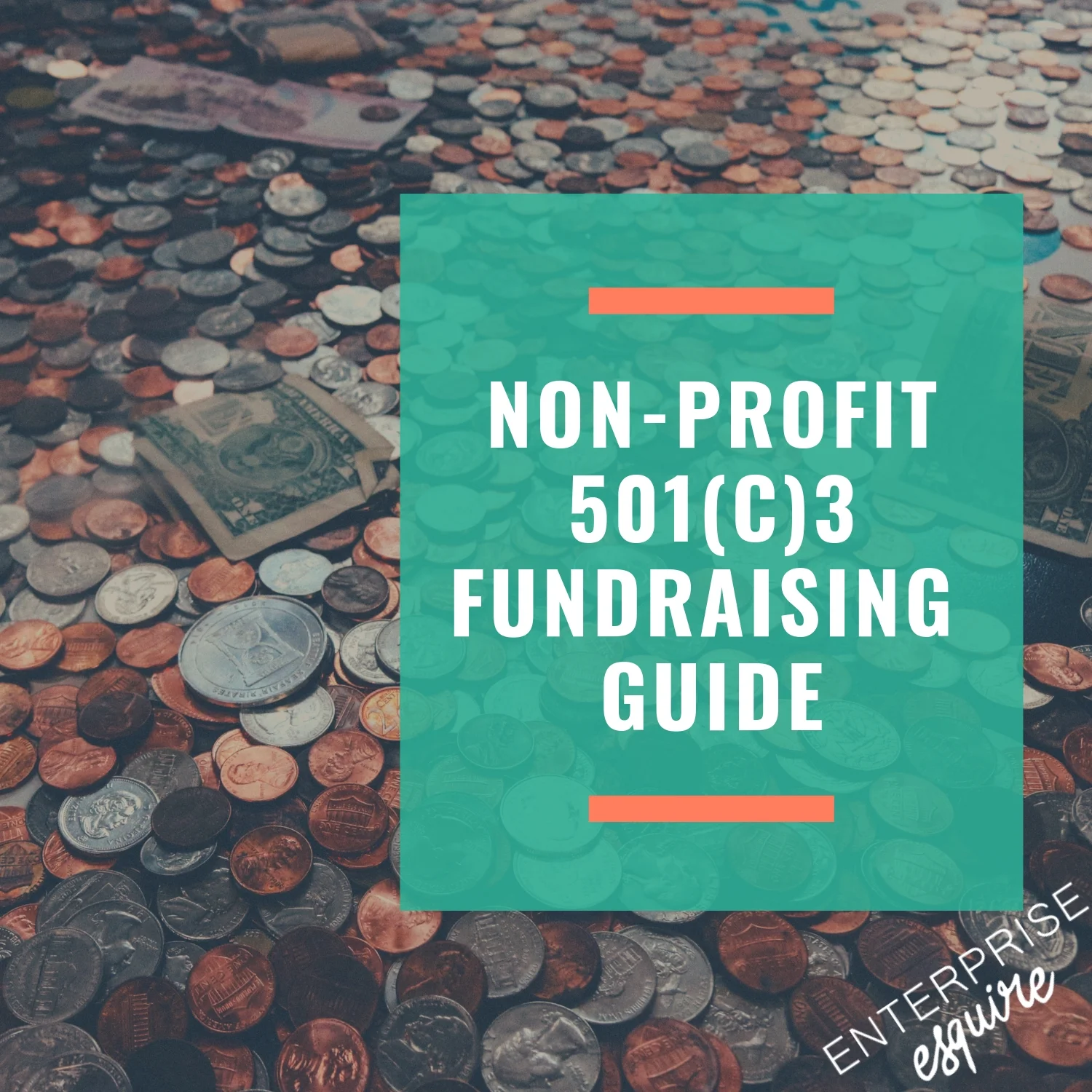Filing Charitable Solicitation Registrations for Your Nonprofit - How to Fundraise the Right Way
Fundraising is the lifeblood of any charitable organization. In order to achieve your nonprofit’s goals, you are going to need some cash. So, what do you do? Depending on the kind of organization you run or the goals you hope to achieve, you might decide to hold a fundraising event, send out mailings, create a website, become active on social media, get out into the community, or even just make phone calls to friends and family. While the breadth of fundraising activities is incredibly broad, the State of Illinois has one centralized process to make sure that fundraising is conducted ethically and with appropriate oversight. This process is called Charitable Solicitation Registration.
Many States Regulate Fundraising Through Registration
Forty states regulate charitable fundraising through registration. The basic concept behind this oversight mechanism is: if your organization solicits others for charitable donations, there should be some way for donors to know that the organization is legitimate. “Solicitation” in this context simply means asking for a donation. This can be done one of many ways:
● In person
● Via website or social media
● Through texting or phone calls
● Direct mail
Solicitation, no matter how it is conducted, triggers these charitable solicitation registration requirements.
How Does Registration Work in Illinois?
In Illinois, like many other states, charitable solicitation registration is required prior to soliciting any donations for charitable organizations. Under the Illinois Charitable Trust Act, organizations fall under this requirement if they receive or hold more than $4,000 in donations. There are two parts to this registration requirement: the initial filing and annual reporting.
The initial registration is filed with the Illinois Attorney General’s Office using the CO-1 Registration Statement and the CO-2 Financial Information Form. In addition to these two forms, organizations must also provide:
● Articles of Incorporation
● Certificate of Good Standing with the State
● Bylaws
● Any partnership or other governing agreements
● Federal tax returns for the past three years (unless the organization is less than a year old, then the CO-2 Form will suffice)
● List of all names, mailing addresses, and telephone numbers of the directors
● IRS Determination Letter (if the organization is a 501(c)(3))
● Copies of any fundraising contracts
● $15 registration fee
These forms are required, as we mentioned, before beginning any solicitation, and they are due within six months of initially receiving charitable assets. Failure to submit these forms within this timeframe can result in late filing fees of $200.
Illinois is also one of the many states that requires paid fundraising professionals and consultants to register with the Attorney General before assisting any nonprofits in their solicitation efforts. Fundraising professionals are subject to their own set of reporting requirements and legislation.
How Often Do You Have to Update Your Registration with the State?
Each year after the initial filing, organizations are required to file Annual Report Form AG990-IL within six months of the fiscal year end. If the organization holds less than $25,000 in donations, however, it may simply file CO-2 again. Failure to file on time results in a late filing fee of $100.
Religious organizations, as well as a number of other kinds of charitable nonprofits, may be at least partially exempt from filing annual updates to the Charitable Registration. Religious organizations, for example, file Form CO-3, the Religious Organization Exemption, to avoid the annual filing requirement.
What if You Fundraise Across Multiple States?
This is a problem that comes up often, and it’s a bit of a murky area of law. What if your solicitations span beyond the State of Illinois? If you are engaged in fundraising activities online, it is very likely that out-of-state donors may engage with your charitable message. How does this work? Do you need to file Charitable Solicitation Registration Forms in every state? Maybe. Check out Council of Nonprofits’ report, Charitable Solicitation Compliance, and consult with an attorney if you are concerned about how your online solicitation may impact your compliance.
Remember, You’ve Got Someone on Your Side
If this seems overwhelming -- keeping track of annual filings, figuring out which forms to file and when -- don’t worry! It is possible to get professional help sorting all this out. At Enterprise Esquire, our Nonprofit Virtual General Counsel package features a full compliance audit, including charitable solicitation registration requirements. To learn more about our comprehensive legal services and the charitable solicitation requirements in the State of Illinois, schedule a FREE 15-minute consultation with Alexis Hart McDowell to discuss your needs.







